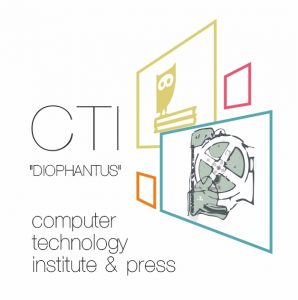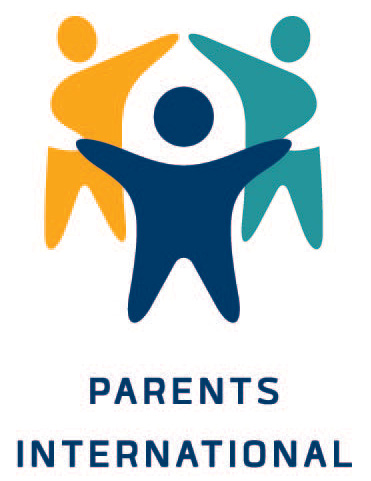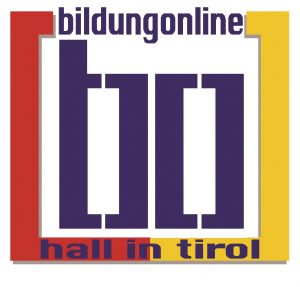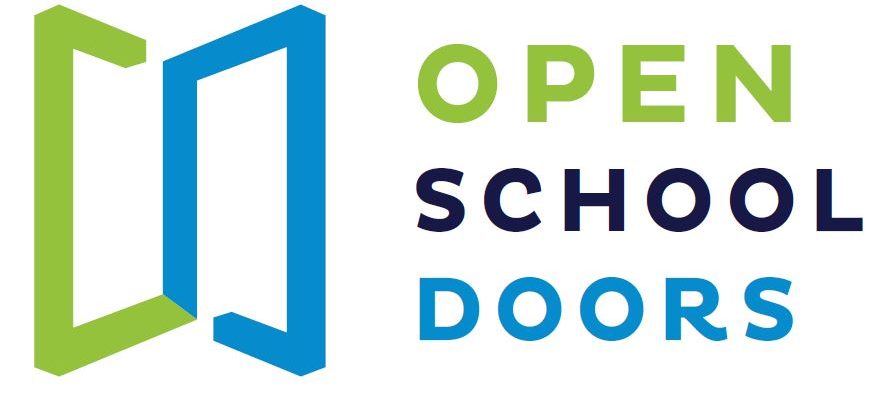
The TU Dresden is one of eleven German universities that were identified by the German government as an ‘excellence university’. TUD has about 35.000 students, 4.400 publicly funded staff members – among them over 500 professors – and approximately 3.500 externally funded staff members, and, thus, is the largest university in Saxony, today. TU Dresden is strong in research and provides first-rate programmes with an overwhelming diversity, with close ties to culture, industry and society. Having been committed to sciences and the engineering before the reunification of Germany, TU Dresden now is a multi-discipline university, also offering humanities and social sciences as well as medicine, organized in 14 faculties under the roof of 5 schools, making it one of a very few in Germany. As a “synergetic university” TU Dresden closely cooperates with external research institutions, cultural, industrial and social organisations. The TU Dresden is embedded in the DRESDEN concept network, which bundles and uses all synergies of Dresden’s numerous scientific and cultural institutes – under it 6 Fraunhofer-, 3 Leibnitz- and 3 Max-Planck institutes, 1 Helmholtz center, two universities and several technical and cultural collections, museums, libraries and governmental institutes. In recognition of the TUD’s emphasis on applications in both teaching and research, leading companies have honoured the university with currently fifteen endowed chairs. The TUD prides itself for its international flair and has partnerships with more than 70 universities worldwide. Furthermore, TUD is the only university in East Germany, which has been granted a graduate school and a cluster of excellence in Germany’s excellence initiative. TUD’s strategic goals can be found in four fields of action: The internationalisation of studying and teaching, the internationalisation of research, establishing general conditions for the internationalisation of teaching and research and improving TU Dresden’s position on the international stage.
The Media Center (Medienzentrum) is a central scientific institution of the TU Dresden and is both a research institute as well as a service provider. About 100 employees work at the Media Center in five specialized departments: Teaching and Learning Spaces, Digital Teaching and Learning, Media Design, Media and Information Technology, as well as Media Strategies. The Medienzentrum supports the development and conception of multimedia-based learning arrangements in education and training. Furthermore it is familiar with the development of infrastructures and networking platforms. The Media Center has been partner as well as coordi-nator in national and international projects.

Birmingham City University is a large, diverse, modern University with around 22,000 students drawn from 80 countries. The University has an enviable reputation for providing quality, student-focused education in a professional and friendly environment. Our superb courses, state-of-the-art facilities, first-rate staff, and focus on practical skills and professional relevance is producing some of the country’s most employable graduates, with the Sunday Times University Guide 2013 ranking us in the UK top 30 for the proportion of our students entering graduate-level jobs.
The University contributes around £270 million into the regional economy annually and support thousands of jobs in the area. We’re investing £180 million in our estate, including a major expansion of our city centre campus at Eastside, providing students with an enviable range of facilities.
Our staff and student community is defined by our core values, which outline who we are as a University and how we will work with each other. Our core values are Excellence, People focused, Partnership working and Fairness and integrity
The Faculty of Health, Education and Life Sciences comprises three Schools: Nursing and Midwifery, Education and Social Work and Health Sciences, all of which enjoy a national and international reputation for excellence in teaching and learning. From foundation degrees and undergraduate courses to postgraduate diplomas, PhDs & Professional Doctorates and continuing professioanl development programmes for health and education practitioners our courses combine academic excellence with a strong vocational focus, equipping students with the intellectual skills they need to be successful and the ability to transfer their knowledge to the workplace.
The School of Education at Birmingham City University is one of the UK’s leading providers of teacher education and enjoys an enviable reputation for delivering the highest quality courses, with our primary and secondary teacher training programmes rated by the national inspectorate, Ofsted, as Grade 1 ‘Outstanding’. We offer a range of courses for educational professionals, trainee teachers and serving teachers that cover the school age phases from primary through to continuing adult education, at every study level from undergraduate to PhD. The School of Education provides high quality teaching, delivered by dedicated and caring staff, all of whom have either been teachers or have worked in education. The School trains more teachers than any other university in the West Midlands and is the 10th largest teacher training provider in the UK. In the latest Newly Qualified Teacher (NQT) Survey 94 per cent of Birmingham City University trained newly qualified primary and secondary teachers rated the quality of their training good or very good.
In addition to ITT activity the School supports a vibrant post qualification community of teachers who chose us as a first choice Continuing Professional Development provider.
Phil Taylor has oversight of our masters and CPD programmes in Education. Phil has designed and developed two new CPD pathways that have successfully recruited teachers from across the region. The Masters in Teaching and Learning and the Masters in Education and Leadership are innovative school-based programmes that make use of practice-based enquiry methods. Rather than recruiting students individually the MTL and MEL programmes recruit whole cohorts of students from partner schools to work collaboratively on common and whole school issues. As such they are well supported by head teachers, who may contribute to teaching, and deliver relevant and impactful outcomes.
The School of Education works in close partnership with a large network of schools and colleges across the West Midlands of England to deliver its portfolio of teacher training. This year 900 students will undertake multiple placements in over 1300 partner schools. This includes primary, secondary and special schools. We have additional relationships with early years settings and tertiary colleges, including sixth form colleges, which now deliver compulsory education to 16-18 year olds under a new government policy initiative that requires all 16-18 year olds in England to be in either education or training.
We have a well-managed and active database of partner schools and work closely with them on a range of initiatives beyond initial teacher education including continuing professional development, non-accredited programmes, research and knowledge exchange activities.
Significantly and in recognition of its outstanding work with schools Birmingham City University was awarded Academy Trust status by the UK ministry for education in July 2013. This enables the university to undertake direct ‘sponsorship’, responsibility for performance and finances, of local schools. This facilitates a very close, dynamic association between the University and the Schools it sponsors.

Τhe Computer Technology Institute and Press “Diophantus” is a research and technology organization focusing on research and development in Information and Communication Technologies (ICT).
Particular emphasis is placed on education, by developing and deploying conventional and digital media in education and lifelong learning; publishing printed and electronic educational materials; administrating and managing the Greek School Network; and supporting the organization and operation of the electronic infrastructure of the Greek Ministry of Education, Lifelong Learning and Religious Affairs and all educational units. Since its establishment in 1985, and in the past decades of rapid technological development, CTI has actively contributed to many of the advances that today are taken for granted.
The Sector of Telematics and Applications for regional development (abbrev. “Telematics Center”) of CTI “DIOPHANTUS” COMPUTER TECHNOLOGY INSTITUTE & PRESS, was established with the basic objective to enhance regional development through the effective use of new ICT for the regions covered from the institute.
Basic aims of this department are:
- To operate as a lever for regional development and interregional collaboration
- To carry out applied research for the development and support of specialized ICT applications for the public and private regional sectors (in Western Greece)
- To develop, support and operate information systems useful for the activities of education in Greece

Stichting IPA (Parents International) is established with the mission of supporting parents around the world to become game-changers by helping their children to grow up happy and healthy 21st century citizens. By becoming the best parents of our children we can ensure the future of not only our children, but also the well-being of mankind. The UN Convention the Rights of the Child, the piece of legislation that establishes the rights and duties of parents for the best interest of their children, has been ratified globally, in all countries except the USA.
Global challenges, as well as local ones that may be faced knowing answers from other localities call for a wider cooperation among parents from all over the world. This is the reason why this foundation is calling working with experienced parents’ representatives (active and formal) and professionals, including teachers, social workers, researchers, psychologists, teacher trainers, economists, students, policy makers, youth workers, etc. who are interested in supporting parents, in a global parents’ alliance that works for the best interest and well-being of children all over the world especially by
- supporting parents to become the best educators of their children; increasing parental involvement in all forms of education, with special focus on formal education, for thinking and acting together for education suitable for 21st century children in the post-PISA period;
- fighting illiteracy, promoting reading; working towards equal opportunities for girls and women, education of girls and mothers;
- supporting parents in becoming the main advocates of the rights of the child; demanding that the right to mother tongue and mother culture, even for migrants is granted; supporting to raise digital literacy levels and thus and living in the digital age;
- providing for empowerment for active citizenship and participation;
- fighting xenophobia, hate speech, exclusion, supporting inclusion for a peaceful future;

BildungOnline (B:O) is a non-profit association, which aims to develop, to promote and to spread a holistic use of IT in schools (educational concept – training concept – equipment- or implementation plan) since about 15 years by organising events, meetings of experts and by taking care of various projects. BildungOnline regards itself as a communicator between different educational institutions, companies and initiatives that deal with the use of IT in schools. This is done at national and international level by good contacts that could be built up in recent years (eg Ministry of Education, school boards, universities and colleges, etc.).
Activities, among others:
An annual conference and exhibition event “BildungOnline-international” (education online internationally) to exchange experiences and to present proven solutions in IT in schools in Austria and internationally. BildungsOnline participates in various working groups and projects in Austria and Germany (e.g. ENIS Austria or ECDL in schools, etc.). It also operates the platform “Forum Innovative teaching methods” (Forum Innovative Unterrichtsmethoden). This forum developed a modular system of educational and technically coordinated and tested in best practice blocks, from which schools may select the best solution. “ITisaHiT – IT in schools area Hall in Tirol”: This platform supports the school authorities in the borough Hall in Tirol (carrier of 9 schools), so that schools in the region can work together and be centrally managed. In some parts of the project such as ‘it is a book’- an online association of libraries in the catchment area or the development of a centralized control of AV technology or the school network -, it is a net’. Dissemination of experiences and solutions both nationally and internationally at fairs and conventions (egdidacta Germany, Learntech Karlsruhe, Interpädagogica Austria etc.) The expertise has been confirmed with the award to Worlddidac Education Ambassadors on the Worlddidac 2014 in Basel. The people involved in BildungOnline are teachers who have operated for more than 20 years and still operate, of school networks in their own schools, but also at other schools. Numerous consulting in the field of IT integration at new school buildings and modifications on equipment as well as training and IT-integration into school life in Austria and Germany were performed. BildungOnline or employees have carried out international projects or participated therein (Interreg ‘education online limitless’; div. Comenius projects).

Ellinogermaniki Agogi (EA) is an educational organization of private law, officially recognized by the state. Established in 1995, the Research and Development Department of EA provides the test bed for research applications for the design, development and implementation of the research activities in education.
The R&D Department acts therefore as an interface between the pedagogical research, the technological innovation and the school community. It focuses on the design, implementation and support of pedagogical and technological innovations in educational practice, both through internal research, as well as through collaborations with numerous educational, research and commercial institutions in Europe and the world.
The work of the R&D Department focuses on the following areas: a) Development of methodologies and empirical classroom-based research;) b) Comparative research on educational policy at national and European level; c) Development of a model of and support for School innovation d) Design and implementation of short- and long-term professional development of teachers e) Cooperation and collaboration with Universities, research centers, museums and private companies for the development and testing of educational material , outreach exhibitions and workshops f) Design of technology-supported learning environments.
EA has a very strong vision-generated interest and rich research and development activity in the fields of formal and informal learning with an emphasis on social inclusion, implementation of anti- bullying policies and projects, combined with innovative technical solutions, game-based education, aiming to empower learners and teachers to thrive in the landscape of unprecedented challenges and opportunities in the 21st century.
Under this approach, EA has taken up the challenge to embed pedagogical practice that effectively uses ICTs in every classroom to overcome barriers and support inclusion, as well as driving up student academic outcomes across the school. Moreover, a large range of previous projects were focused on developing and implementing technological tools which leverage both digital science repositories and informal learning.





